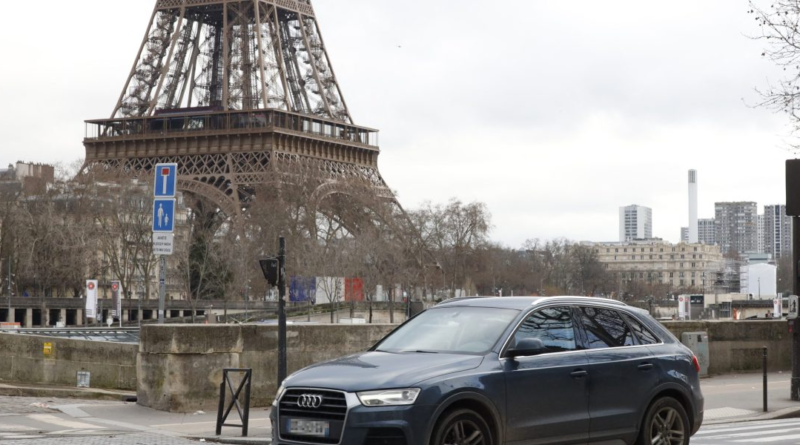Paris votes to triple SUV parking fees—but voter turnout reignites 'rigging' debate
Parisians have voted to triple parking fees for vehicles over 1.6 tonnes, hitting gas-guzzling SUVs with a $20 price tag for inner-city parking.
The change spares inner-city residents with parking permits, focusing on non-Parisians. Electric vehicles are affected only if they weigh over two tonnes.
However, the decision was far from unanimous, with a mere 5.7% turnout (78,000 voters), as 54.6% favored the increased fees.
“The question posed is first and foremost a subject of ecology, how to breathe better, have healthier air,” Paris Mayor Anne Hidalgo said in a statement.
“Giving Parisians a voice, keeping democracy alive between two elections, that’s what I am committed to in 2020.”
Hidalgo, a socialist, has adopted aggressive policies to improve the livability of Paris for its citizens.
She has overseen the creation of 84 kilometres of cycle lanes since 2020, and a 71% jump in bike usage between the end of COVID-19 lockdowns and 2023.
But her tactics have come under scrutiny.
Spotlight on voting process
Hiking fees for overbearing, polluting SUVs is reminiscent of Paris’s ban on e-scooters last year, when less than 8% of eligible Parisians turned out to cast a vote.
That such a small number has turned out once again lends credence to claims by e-scooter companies Lime, Dott, and Tier Mobility SE, that the referendum was rigged against them.
Critics argued last year’s referendum was held to minimize young voter turnout, who were more likely to be in favor of e-scooters.
The race was held on the day of the Paris Marathon, online voting wasn’t allowed, there were only a handful of voting stations, and non-EU citizens were banned from voting.
Speaking to Fortune last year, a spokesperson for Lime said: “Turnout was abysmally low,” adding the outcome was “a result of how the city designed the structure of the vote.”
On this occasion, those deemed eligible to vote came from the inner city, where fewer people are likely to drive SUVs. That combined with an exemption on fees for residents increased the likelihood that they would vote to make it harder for visitors to park in the city.
Paris’s mayor is now facing pressure from lobby groups, including “40 millions d’automobilistes,” which launched a petition intended to let drivers use whatever vehicle they wish.
“We must firmly oppose these attacks on freedom pursued under false green pretexts,” the group said, per Reuters. “If we don’t stop it now, this unjustified rebellion led by an ultra-urban and anti-car minority will spread like gangrene to other cities.”
The mayor’s office didn’t immediately respond to a request for comment.
Europe’s love-hate relationship with SUVs
Paris is one of several European cities assessing their relationship with giant family-friendly cars.
In addition to gas-powered SUVs being highly polluting, their sheer size means even EV versions can become a public nuisance, blocking roads and distorting views from sidewalks.
They’re also considered much more deadly than traditional cars.
In the U.K., the country’s Advertising Standards Agency banned a Toyota SUV commercial, saying it disregarded the car’s impact on the environment.
London’s mayor Sadiq Khan said he welcomed Hidalgo’s new policy, adding he would monitor its effectiveness as he contemplates similar restrictions in the U.K. capital. Khan, however, doesn’t have the power to bring in increased fees for SUVs.
Lawmakers in other European cities, including Lyon in France and Tübingen in Germany, have started to incorporate vehicle weight into the tariffs they charge drivers.
Yet despite highly antipathetic rhetoric from progressive European lawmakers, SUV popularity among the continent’s citizens is only rising.
According to JATO Dynamics, SUVs accounted for 54% of new vehicle registrations in September last year. In the first six months of 2023, the cars made up 46% of French car sales, per AAA data.
Tesla’s electric SUV, the Model Y, was the most popular car sold in Europe last September, according to JATO.
Hidalgo’s transport chief, Green Party politician David Belliard, says the increased fees would affect 10% of the city’s vehicles, potentially adding €35 million ($37.6 million) to the country’s coffers, per Le Monde.




